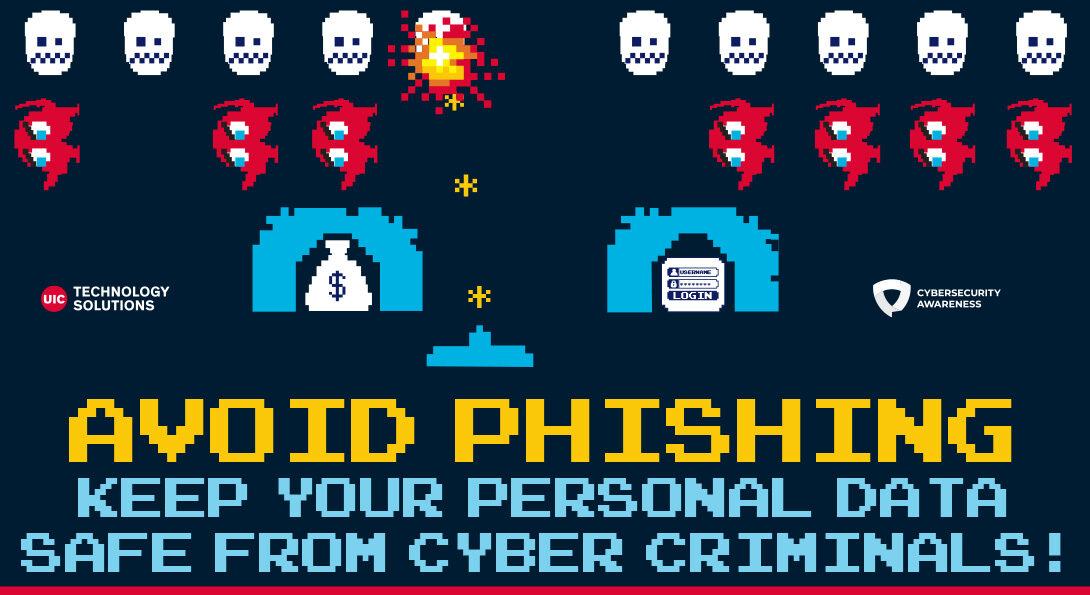Keep Your Personal Data Safe from Cyber Criminals! – Official UIC Cyber Security Awareness Campaign 2022

intro
Ever wonder how cyber criminals get access to your data? Attackers send fraudulent messages designed to trick you into revealing sensitive information.
What is Phishing, and how do Cyber Criminals use it?

Phishing is a type of social engineering attack cyber criminals use to steal your identity and/or money, by getting you to reveal personal information such as credit card numbers, bank information, or passwords, on websites that pretend to be legitimate.
Here are a few tips on how to protect yourself from social engineering & phishing attacks:

Check link URLs
Always make sure links are legitimate by hovering your cursor over the URL to see where they actually go first, and if you are in doubt, contact the person or organization who appears to be sending you the information using another method such as calling them, sending them an SMS or chat message, or by emailing them directly.
Don’t use untrusted devices
Don’t use an untrusted device. If you find a USB drive, random disc, or any other type of media storage, in a parking lot or otherwise just laying around, toss it out. They could easily be filled with malicious software that will launch itself when plugging them into your devices. The same goes for using charging cables or usb ports for your phone or laptop received from untrusted sources.
Trust your security features
Many email services, anti-virus software, and even cellular providers have various types of “anti-scam” security that may warn you regarding potential scams. Take these warnings seriously and consider them carefully before taking any actions. Beware, however, some malicious websites may display fake warnings to get you to click them and install fake anti-virus software that is actually designed to steal your information or allow a hacker access to your device. To avoid this, familiarize yourself with your anti-virus software and know how to ask your IT team for help with suspecious alerts.
Slow down & think
Does a situation sound too good to be true? Oftentimes, social engineering relies on making a person act too quickly without time to consider their action. Scammers may pretend to be a relative or colleague in dire need, but think – is it normal for them to send out emails instead of calling? Call that colleague or relative to confirm it’s really them.
2022 UIC NCSAM Quiz
Show us what you’ve learned this week for a chance to win one of eight $50 gift cards to the UIC Bookstore! Simply take this week’s quiz by Sunday, October 30th, 2022 at 11:59PM and earn a score of 100% to qualify. See rules here.